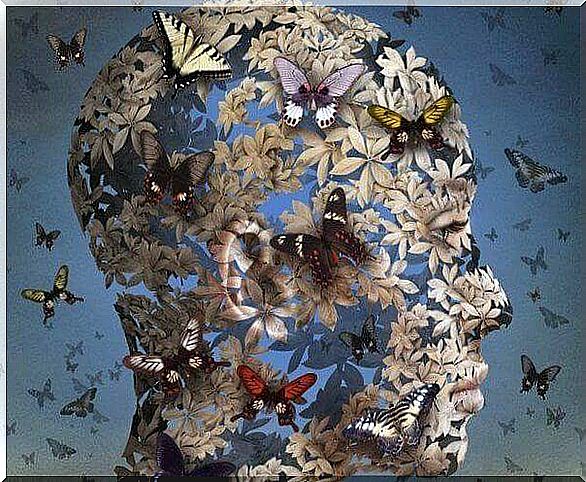The Wonderful Emotional Brain Of Resilient People

Resilient people know that no one is immune from suffering, from adversity. They understand that when those moments of darkness and hopelessness appear, we have two options: let ourselves win or overcome, fight with every possible strategy, because life is wonderful if we are not afraid.
You will be pleased to know that the term resilience actually comes from the field of physics. It refers to the quality of some materials to resist pressure and bend with flexibility to return to the original shape. However, resilience, applied to psychology, presents another more interesting existential dynamic: that of making us grow.
Resilient people: a brain that learns to cope with stress
The concept of resilience began to be used in the 1940s in the field of child psychology. We tried to understand how the most disadvantaged children faced family problems and the adversity around them.
For a long time, the idea that resilience had a genetic origin was maintained, that is, the person who had suffered post-traumatic stress throughout their life transmitted this “gene” to their children, so that they would be more vulnerable and would find it more difficult to integrate complex experiences.
The genetic origin of resilience has been pushed aside over the years to be more oriented towards psychosocial and neurological factors.
An example of this is a study by Dennis Charney of Icahn Medical University at Mt. Sinai and Steven Southwick of Yale Medical University, which determined how the brains of resilient and non-resilient people work. These would be the main data to be taken into account.

Neurological origin of resilience
There are people who adapt much better than others to situations of stress or pressure.
- The origin would be in a more effective control, at the neurological level, of hormones such as adrenaline, norepinephrine and cortisol.
Faced with a threat, these three neurotransmitters appear in the brain, but when the threatening focus disappears, the most resilient person will immediately make these three hormones disappear. In return, the less resilient personality will continue to feel this psychological threat persistently because there will still be an excess of cortisol, adrenaline and norepinephrine in their brain.
- The brain of resilient people is also characterized by a very balanced use of dopamine. This neurotransmitter, related to reward and gratification, is very helpful in making us face adversity.
Something to bear in mind is that, in states of chronic stress and anxiety, our brain no longer releases dopamine, the pleasure neurotransmitter, and that’s when helplessness and difficulty in acting with resilience arise.

Secrets to Learning to Build Your Resilience
One aspect we should not forget is that resilience is a skill and therefore a skill that we can develop and train. In order for our brain to find this neurochemical imbalance, it is necessary to manage our emotions properly.
Being able to be resilient is a process and learning that should be taught in schools. In fact, Martin Seligman himself, father of positive psychology, started an interesting program in several elementary schools with excellent results.
In short, these would be the main secrets for learning to be resilient.
- Never let your own emotions overwhelm you and don’t let them paralyze you. Imagine that you have an emotional compass that allows you to maintain control over your mind, to gain attention and effectiveness.
- Be yourself, don’t seek the approval of others, or try to like everyone. All of this takes you away from your own interests, from your own balance.
- Do not get carried away by fanaticism or fall into an “unrealistic” positivism. It is about seeing things objectively, understanding, moreover, that adversity is part of life.
- Focus on the here and now, what matters is the present: don’t anticipate things that didn’t happen, or keep regretting things that have passed away.
- Help and let yourself be helped. Take care of your social relationships and build positive bonds that are worthwhile, where you can support yourself and grow as a person, in freedom and integrity.









